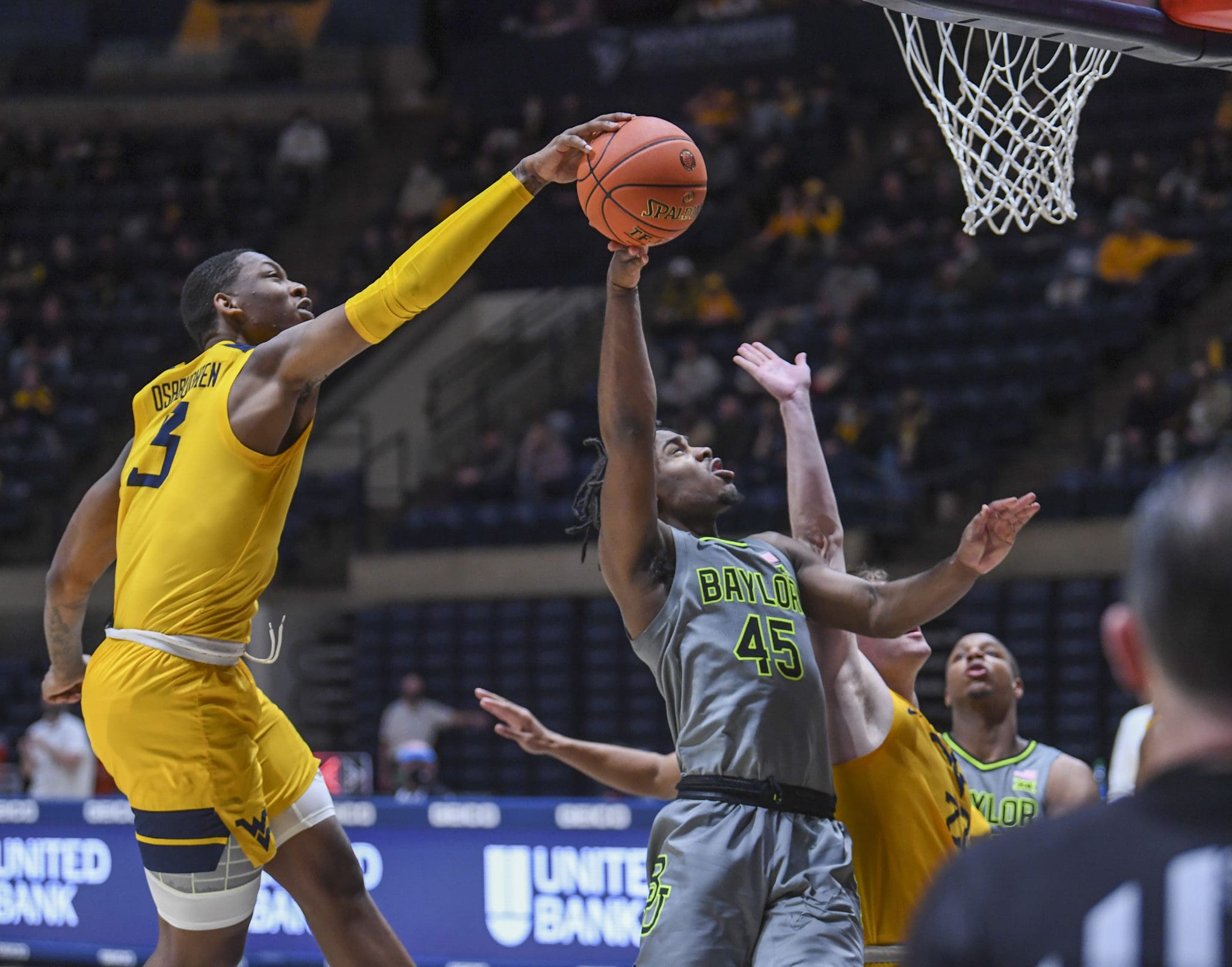WVU Basketball
Improved Interior Defense the Key to WVU Replacing Derek Culver’s Production

Amid all the confusion from Monday conflicting reports on West Virginia forward Derek Culver we know one this for certain, Culver will not be returning to the Mountaineers next season. Losing the first-team All-Big 12 big man will obviously be a big blow to the Mountaineers, who have come to rely on Culver’s production inside over the past three seasons.
Judging by the moves WVU has made this offseason, it appears that losing Culver to the NBA was a possibility head coach Bob Huggins took very seriously. Since the end of the season, Huggins has brought in two graduate transfer forwards to play for West Virginia next season, Dimon Carrigan from Florida International and Pauly Paulicap from DePaul. Those two, along with the return of senior Gabe Osabuohien, give Huggins three experienced low-post players to try and replace Culver with.
Osabuohien, Paulicap and Carrigan all profile as defense-first low post players. Culver averaged a career-high 14.3 points per game in 2020-21, a mark that none of Osabuohien (1.7 ppg), Paulicap (7.2) or Carrigan (6.8) came close to matching last season. Moving to the Big 12, it is unlikely that Carrigan or Paulicap will take a big jump offensively and Osabuohien has only averaged 2.4 points per game for his entire career.
These three should be able to match Culver in rebounding and where they might be able to make up the difference in offensive production is with their defense. Culver averaged 9.4 rebounds per game last season with a total rebound percentage (TRB%) of 19.9%. Carrigan (6.1 rpg, 18%), Paulicap (6.1 rpg, 14.7%) and Osabuohien (4.4 rpg, 13.9%) all also put up strong rebounding numbers.
Defensively, Culver averaged less than one block per game (0.8) and sports-reference.com credited him with a 1.3 defensive bob plus/minus (DBPM). Carrigan (2.5 blocks per game) has been an above-average shot-blocker for his entire college career and had a 2.6 DBPM last season. Paulicap averaged 1.3 blocks and had a 1.8 DBPM. Osabuohien, a defensive specialist, only had 12 blocks all of last season but put up a stellar 6.4 DBPM.
If Carrigan, Paulicap and Osabuohien can grab enough rebounds and play defense well enough, they could feasibly make up for the drop-off in scoring that will come from Culver’s absence. The wild card in next season’s frontcourt rotation will be sophomore Isaiah Cottrell. Cottrell played in just 10 games before suffering a season-ending knee injury but he would have been WVU’s “most skilled big”, according to Huggins. If Cottrell, a former top-100 recruit, can progress into a consistent down-low scoring option for WVU next season, that would go a long way towards replacing Culver.





















